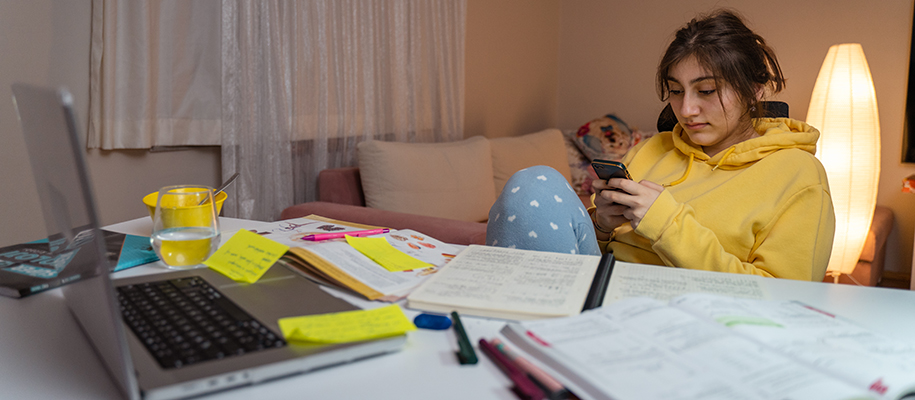There can never be a trade-off between productivity and procrastination. I often find it difficult to manage my time effectively given various distractions, stress, and the sheer amount of work I have to complete in a given time. It’s disconcerting to think about the projects you have due and the number of exams you need to study for in the span of a few days. Productivity is not only limited to completing the task at hand, but it also extends to doing it well and learning a great deal. No matter how hard you try to avoid work when you aren’t feeling up to it, you’re still going to have to confront it one way or another. Sadly, spending hours watching lifestyle videos about maximizing productivity will only close your windows of opportunity and further enable the cycle of procrastination. Here are a few ways to be more productive that I have acquired over the past two years.
1. Make daily schedules
This is a practice I judiciously follow every day. Organizing your thoughts for the day and planning things out more methodically can effectively help organize your life. Write down all you want to achieve in a notebook, on a whiteboard, or via a digital platform (like this free schedule maker template). As you go about the day, slowly begin checking off what you have managed to successfully complete. I would even recommend listing tasks in chronological order so you’re able to prioritize them. This enables you to tackle the more demanding tasks before completing the easier ones. In addition, I would even urge you to make your list a bit overambitious so that you’re mentally and subconsciously prepared to train your mind to tackle a larger volume of work. That way, when you look back on your day, you’ll feel satisfied with all you managed to do by pushing yourself a little more.
Related: Make the Most of Your Time With a Great Study Routine
2. Know your capacity
There’s no use pushing yourself to extremes, where stress is more likely and you’re prone to angry outbursts. Everyone has a threshold that must not be exceeded. I speak from experience when I say that staying up all night isn't the best option. Sooner or later the lack of sleep catches up to you, like the next day in class when you struggle to stay awake and can’t concentrate. Winning that battle with sleep and grogginess is nearly impossible, and work done when you’re bleary-eyed will never help you achieve the grades you want. I remember doing a math problem one time with my eyes drooping, writing down all of the values incorrectly, and getting the entire question wrong. Pushing yourself beyond your limits will only reduce your productivity, so listen to yourself when your body tells you it’s time to quit for the day and recharge.
3. Food is your fuel
Studying takes a lot of energy and the right food can help sharpen your focus and make you feel rejuvenated enough to tackle your next essay or Integral Calculus homework. It’s a good idea to have a glass of juice or a snack during your breaks. It’s important to feel fresh and energized, so taking breaks every hour or so is recommended. The time you spend enjoying a cup of tea or coffee with your favorite snack, maybe reading, watching a TV show, or listening to music or a podcast can go a long way in maximizing your productivity and overall output.
Related: The Best Study Snacks for Healthy Eating in College
4. Pay attention to your work environment
I’m not going to preach about avoiding distractions or staying away from your phone because I know that advice never seems to help. However, you can still work on ways to optimize your work environment so you’re less likely to get distracted or look at your phone. It may not work for everyone, but it has really helped me. To avoid looking at my phone, I completely switch it off. If you want to listen to music, you can download Spotify on your laptop instead of listening to music on your phone. Apps like AntiSocial and Stay Focused help alleviate any level of smartphone addiction and improve your concentration. Additionally, I would recommend keeping all the things you need for your task in your study space so you have everything you need in front of you. This can help you pay attention to the task at hand and stay committed to finishing it.
5. Break down tasks
When you know you have a long assignment to complete, with a lot of research, extra reading, data collection, citations, and writing, you should give yourself ample time to complete said task. Finishing all of it in one sitting may not necessarily help you fulfill the task productively as you tend to compromise on quality. You should use the same approach when you are reviewing for exams. Break down the syllabus so you aren’t overwhelmed on judgment day. Try using methods like the Pomodoro Technique to effectively break down tasks.
Related: 4 Techniques to Improve Your Time Management
Productivity differs from person to person, given the different ways we all work. It isn’t about working the entire day and feeling stressed; it’s about feeling satisfied with what you have completed. Productivity is all about finding the equilibrium that helps you keep your sanity and finish your work efficiently.
Need help getting through all those assignments and exams coming your way? Check out Our Best Advice for Homework, Studying, and Tests to prepare for any academic situation!







